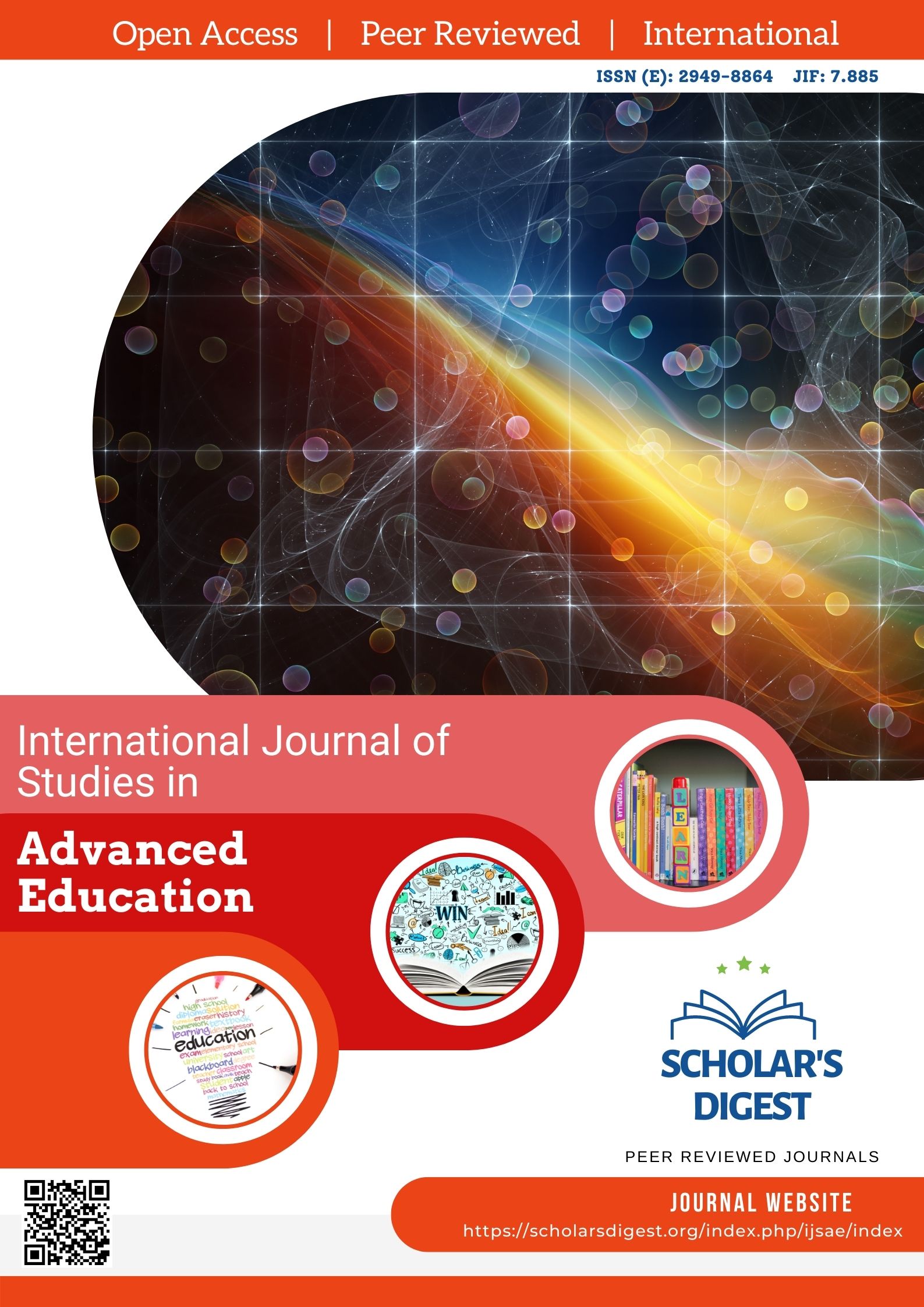USING VIRTUAL REALITY TECHNOLOGIES TO ENHANCE STUDENTS' UNDERSTANDING OF 3D IN DRAWING: AN ANALYSIS OF HOW VIRTUAL REALITY TECHNOLOGIES CAN ENHANCE MOTIVATION AND DEEP UNDERSTANDING OF VISUAL ARTS
Keywords:
Virtual reality techniques - enhancing students’ understanding of three dimensions - drawing subject - and deep understanding of visual arts.Abstract
The research seeks to shed light on the impact of using virtual reality technologies in enhancing students’ understanding of three dimensions in drawing, in addition to the study seeking to know the impact of virtual reality techniques in enhancing motivation and deep understanding of visual arts. The research relied on the experimental approach in the manner of the experimental and control groups. By comparing the scores of the two study tools, “the three-dimensional understanding scale for drawing subject, and the in-depth understanding scale for visual arts” before and after applying virtual reality technologies, The study found that there were statistically significant differences between the average scores of the experimental and control groups in the level of motivation and deep understanding of the visual arts after using virtual reality techniques (post-test) in favor of the experimental group in the post-test, as virtual reality techniques succeeded in increasing the level of motivation and deep understanding of the visual arts in the students. Preparatory school students, which explains the invalidity of the second sub-hypothesis of the study, which states that “there is no significant relationship between the use of virtual reality technologies and enhancing motivation and deep understanding of the visual arts,” which explains the effectiveness and success of using virtual reality technologies in raising the level of motivation and deep understanding. Visual arts for middle school students The study recommends the need to pay attention to providing training programs and courses for art education teachers on the use of modern technological methods in the educational process.
Downloads
Published
Issue
Section
License

This work is licensed under a Creative Commons Attribution-NonCommercial 4.0 International License.








